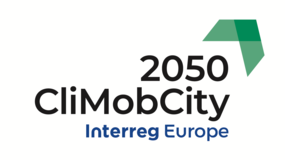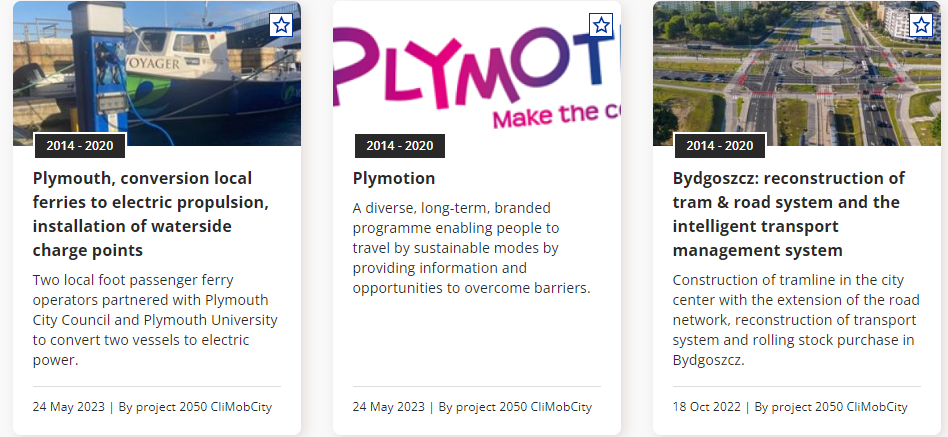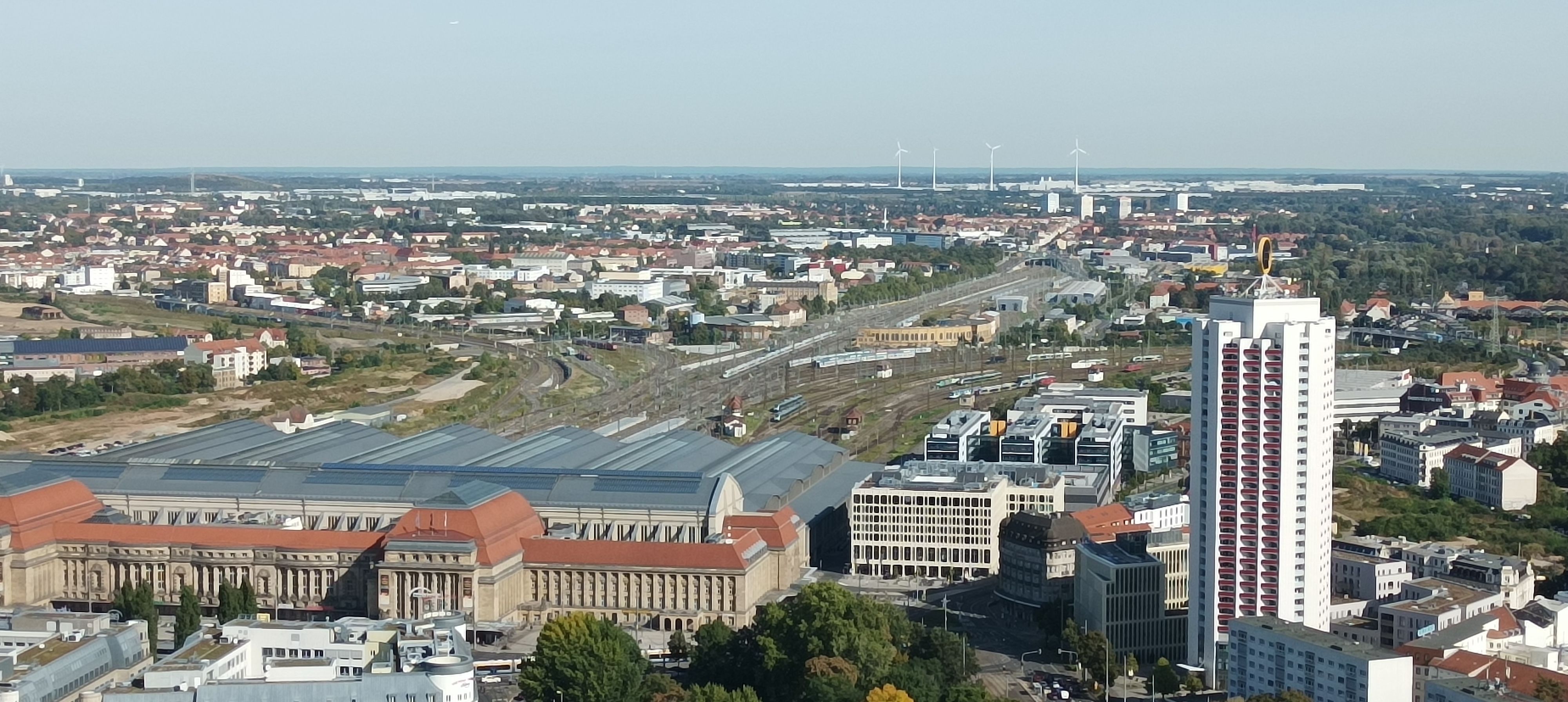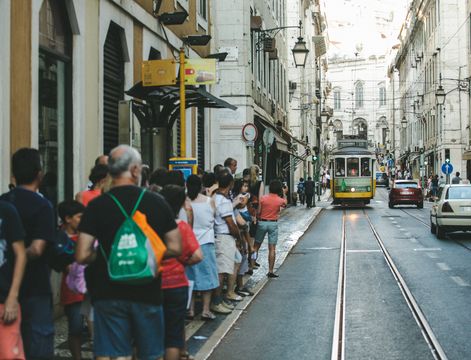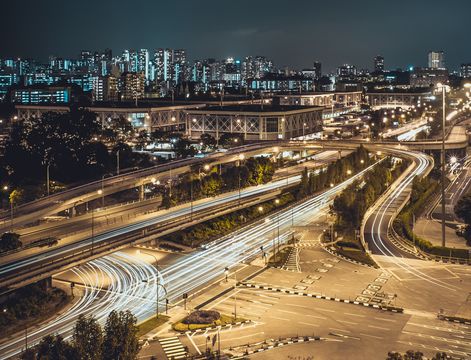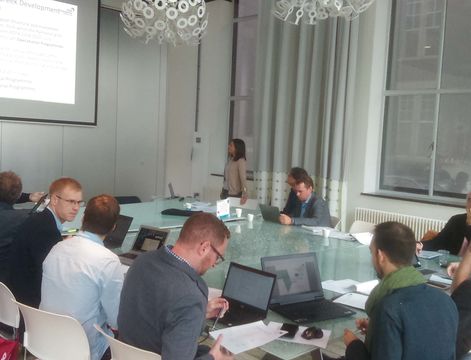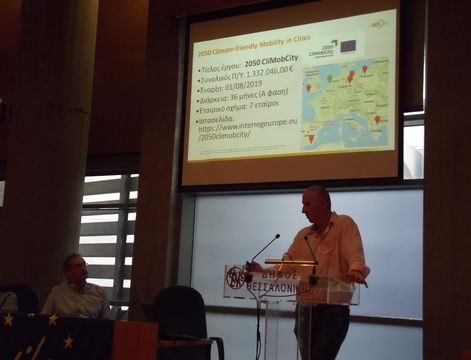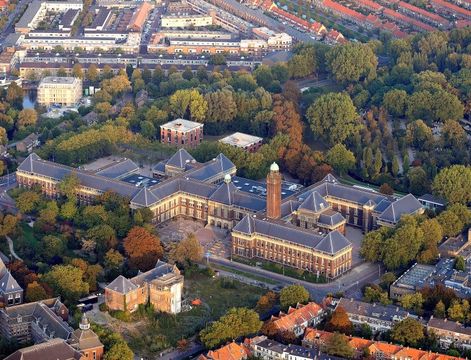On 30 September and 1 October 2019 the Interreg project 2050 CliMobCity had its kick-off meeting organised by the Lead Partner Delft University of Technology.
In the morning of the first day the consortium gathered to discuss the working plan regarding the implementation of the project and the city partners gave a short introduction to their current and planned mobility policies.
In the afternoon a seminar and site visit took place in the city of Utrecht. We visited the world's largest bicycle parking garage at Utrecht Central Railway station, having a capacity of 12.500 bikes (and together with another bicyle parking garage on the other side of the station the total capacity in this area is around 20.000 bikes). The development of this bike garage has been part of a much more comprehensive plan to redevelop the railway station area to make the station more attractive to travelers and the surrounding area a much more attractive residential area. The bike parking garage is not only unique because of its huge capacity, but also because of its design and usability. It acts as a great facilitator to support biking and intermodal rail transport.
Our seminar was dedicated to E-mobility and our host was the company LomboXnet. The municipality of Utrecht gave a presentation about their long-term policy on electric mobility including the development of charging infrastructure. The company LomboXnet explained their innovative charging infrastructure (smart solar charging) that is based on the principle of bidirectional charging and how this technical concept can also support behavioural measures aimed at sustainable transport, such as reducing own car ownership and supporting car sharing. The bidirectional charging has become of interest for housing corporations in Utrecht, which use the technical innovation to develop new mobility and housing concepts.
The second day we had a seminar about future-proof mobility and area development, taking place in the district IJburg in the city of Amsterdam. The city district IJburg has currently 22.000 inhabitants and when the whole district is developed in 2038 it will have 70.000 people living there. The municipality of Amsterdam presented their vision and plan development of IJburg. Realising sustainable mobility is a key element in the area development of IJburg. The goal is to have a modal share of 70% for bike and public transport together. Major measures that that are being taken are: encouraging the use of sustainable modes, by making public transport and active travel infrastructure (more) attractive, discouraging car use (e.g. with very low parking norms) and making the city district compact (a housing density ranging from 40 to 75 houses per ha). In addition, the municipality of Amsterdam also presented their policy measures in view of its ambition to have zero emission in 2030, focussing on the mobility measures in particular. The seminar ended with a guided walking tour at Haveneiland being the largest and the most developed Island of the district IJburg so far.
The next partner meeting will be held in the Spanish city of Almeria in the beginning of 2020. This meeting will be dedicated to exploring promising measures and municipal measure packages to reduce CO2 of mobility.
